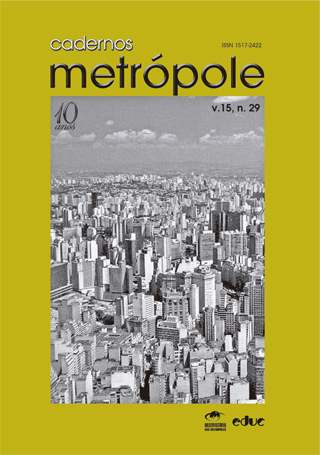São Paulo, the unsustainable Metropolis – how can we overcome this reality?
Keywords:
metropolitan areas, sustainability, socio-environmental justice, social inequality, environmental disasters, BrazilAbstract
The Metropolitan Region of São Paulo, composed of 39 municipalities and with a population of more than 19 million inhabitants, is a fragile and complex ecosystem. The “unsustainability” that characterizes the pattern of metropolitan urbanization features the prevalence of a process of expansion and occupation of intra-urban spaces that, in most cases, represents a dramatic reality: low quality of life for large sectors of the population. The duality of the cities is expressed by the growth of the urban illegality that constitutes it, exacerbating the socio-environmental problems that are concentrated in urban spaces with precarious urbanization and differentiated access to public investments. It is also characterized by a disorderly occupation resulting from the lack of a logic of collaborative governance and from the unpreparedness of public officials to face complex situations, as is the case in very populated and conurbated regions within the metropolis.Metrics
Downloads
How to Cite
Issue
Section
License
A revista não tem condições de pagar direitos autorais nem de distribuir separatas.
O Instrumento Particular de Autorização e Cessão de Direitos Autorais, datado e assinado pelo(s) autor(es), deve ser transferido no passo 4 da submissão (Transferência de Documentos Suplementares). Em caso de dúvida consulte o Manual de Submissão pelo Autor.
O conteúdo do texto é de responsabilidade do(s) autor(es).


